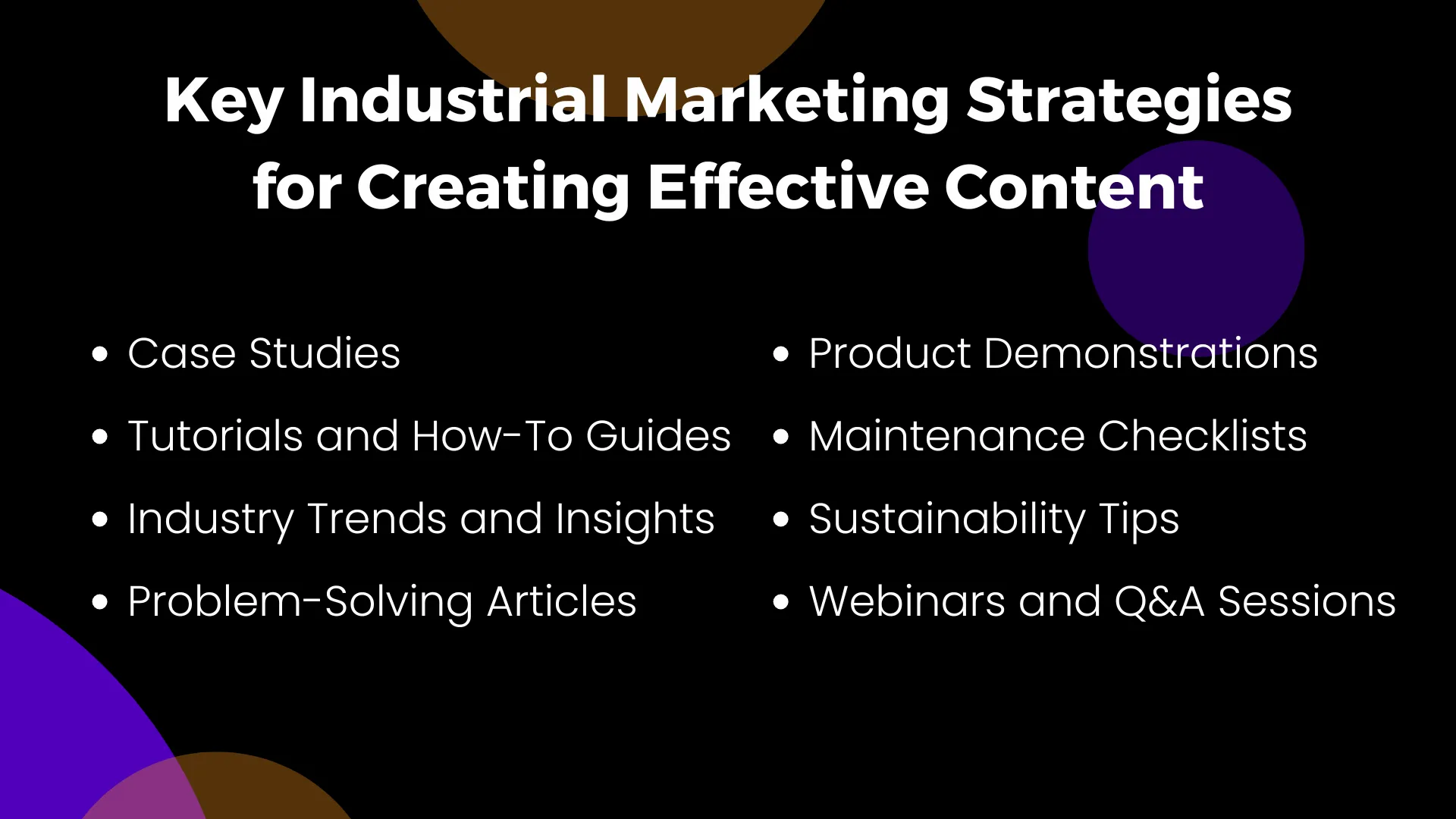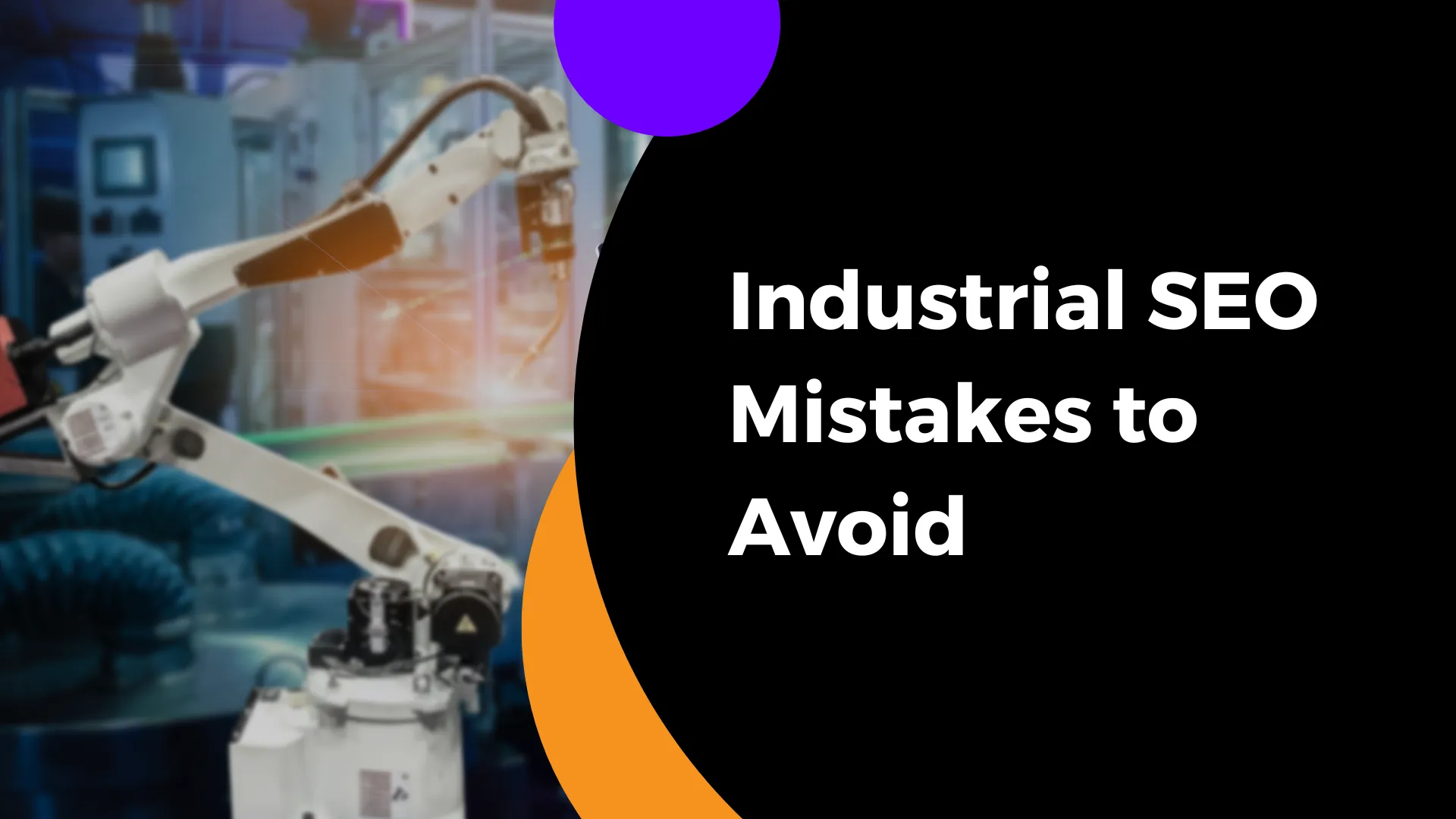Top SEO Tactics for Industrial Marketers to Boost Online Visibility
For marketers trying to boost online visibility, create leads, and stand out in a very competitive market, industrial SEO marketing has evolved into a vital tool. Industrial marketing must target a niche audience, explain technical items, and accommodate protracted buying cycles, unlike consumer markets.
This guide offers practical, customized SEO strategies designed especially for industrial marketers, thereby enabling you to improve ranks and interact successfully with your target market.
Why SEO is an Important Part of Industrial Marketers’ Work
Search engine optimization helps industrial marketers overcome particular challenges by making their companies more discoverable online. Having a strong internet presence guarantees you’re visible during the crucial early phases of industrial buyers’ decision-making process since they often do considerable research before deciding what to buy. SEO industrial marketers use target specialist keywords and technical terminology to drive highly qualified traffic to their websites. By presenting a company as an authority in its sector, it also increases credibility and trust. An effective SEO strategy helps reduce sales cycles by offering relevant information quickly and engaging potential buyers.
Why Continuous Improvement is Key to Dominating Industrial SEO
Any effective industrial SEO strategy depends critically on continual improvement. Search engine algorithms and user behavior change frequently in the online realm. Industrial marketers have to maintain an attitude of continuous optimization and creativity if they are to remain competitive. Identifying areas for improvement requires monitoring website performance indicators, user comments, and industry trends. This approach guarantees that SEO techniques stay current and effective, thereby enabling companies to keep and increase their digital presence. Continuous improvement helps industrial marketers adapt, overcome competitors, and widen long-term growth.
Top Industrial SEO Marketing Strategies to Boost Online Presence
 1. Perform Comprehensive Keyword Research
1. Perform Comprehensive Keyword Research
Any great SEO plan starts with keyword research. To conduct thorough keyword research, determine the terms and phrases your target audience will use to find your products, services, or information. Get insightful information on keyword volume, competition, and trends with SEO services such as Google Keyword Planner, SEMrush, or Ahrefs. Use high-volume keywords for broad reach and long-tail keywords for specific user intents. Examine other industrial companies to find further keyword possibilities they might be exploiting. To ensure content matches search intent, categorize terms as informational, navigational, or transactional. Change your keyword list often to fit evolving industry dynamics and search behavior.
2. Optimize Industrial Website for Technical SEO
- Implement Mobile-Friendly Design: Make sure your website is mobile-friendly. Mobile-friendliness is one of the search engine rankings essentials.
- Improve Site Loading Speed: Check and improve your site’s loading time with Google PageSpeed Insights. To speed up loading, compress pictures, enable browser cache, and reduce CSS and JavaScript.
- Use Secure HTTPS Protocol: To switch from HTTP to HTTPS, get an SSL certificate. This increases website security and search engine reputation.
- Create Clean and Structured URLs: Use clear, descriptive, SEO-friendly URLs for all web pages. Avoid extraneous parameters and make URLs simple.
- Optimize for Crawlers with a Sitemap and Robots.txt File: Create and submit an XML sitemap to assist search engines crawl and indexing your site. Set up a robots.txt file to control search engine access to your site.
- Fix Broken Links and Monitor 404 Errors: Regularly check your website for broken links and 404 problems. These flaws might hurt SEO and user experience.
- Leverage Structured Data and Schema Markup: Use schema markup to give search engines rich content data. This improves your site’s SERPs.
- Ensure Strong Internal Linking: Make navigation plain and logical with internal linking. This improves user experience and helps search engines understand site hierarchy and content relevancy.
Manufacturing companies can boost website traffic, user experience, and search ranking by addressing these technical SEO basics.
 3. Create High-Quality, Technical Content
3. Create High-Quality, Technical Content
Industrial buyers need detailed product knowledge, case studies, and technical insights to buy. To reach this group, industrial SEO marketers should create high-quality content that addresses their audience’s pain points and offers answers. They may receive thorough publications, product details, step-by-step how-to guides, and relevant blog posts. Make the information instructive and practical, showing how your products or services may solve their problems. To boost search engine rankings and site visitors, give value and strategically use target keywords. Doing so will build credibility, trust, and industry expertise for your brand. Regularly updating this content ensures it stays relevant and continues to meet the needs of your audience.
4. Leverage Local SEO
For local search engine optimization, industrial businesses should improve their web presence to attract local clients. Claim and optimize your Google My Business listing, updating your business name, address, phone number, and hours. Encourage satisfied clients to post reviews to increase your presence in the local search results. Use location-specific keywords in website content, meta descriptions, and headings to match search intent.
Local SEO connects businesses with local customers who are actively searching for their services. Local search equality helps small and medium-sized companies compete with larger ones. Local industrial SEO marketing also keeps your business relevant and accessible in today’s digital ecosystem, as mobile searches for “near me” services rise.
5. Build High-Quality Backlinks
High-authority backlinks from industry websites, associations, or media can raise search engine ranks and provide focused traffic to your content. These links show search engines that your website is reliable in your field. Guest writing on reputable websites, collaborating on in-depth research or reports with industry leaders, and participating in webinars and virtual events where your knowledge can shine are ways to generate high-quality backlinks organically. Industrial companies can also connect with niche journalists and influencers who may naturally link to their content. Avoid low-quality link-building practices like spamming forums, which can damage your site’s reputation and lead to search engine penalties. Use value-driven, authentic techniques to benefit your audience and brand.
6. Implement Schema Markup for Products and Services
To help search engines understand your website’s content, you include schema markup or structured data. It gives your website’s information context, making it more likely to appear as rich snippets in search results. Schema markup can help industrial services and products stand out by displaying features, pricing, availability, and reviews, which B2B clients consider.
To apply schema markup for industrial products and services, identify the schema types that match your offers. Examples: “Product,” “Service,” “Offer.” Use Google’s Structured Data Markup Helper to produce schema markup from your content. Enter this code directly into your webpage’s HTML or use a CMS plugin if you’re uncomfortable editing code. Once implemented, use Google’s Rich Results Test Tool to validate code accuracy. To keep your website useful for search engines and users, update the schema regularly to reflect product or service changes. Your website’s schema markup can be implemented and optimized by an industrial SEO marketing agency. These companies know the best schema types for your industry, ensuring that the material is search engine-friendly. They can implement technology, reducing errors and saving time.
7. Focus on Analytics and Continuous Improvement
Track your website’s performance and find areas for development with analytics tools including Google Analytics and Search Console. These tools help you evaluate SEO performance by revealing organic traffic, bounce rates, user behavior, and keyword ranks. You can determine what pages are most popular, which keywords are underperforming, and where users are leaving via examining this data. Improve your SEO strategy by targeting better keywords, optimizing page content, or boosting site usability.
To keep ahead of other businesses and adapt to search engine algorithms, you must regularly update your content with important material and try new methods like A/B testing and link-building. Long-term success in the ever-changing digital landscape requires proactivity.
Common Industrial SEO Mistakes to Avoid
Manufacturing companies regularly make SEO mistakes that affect their success:
- Neglecting Keyword Research: Lack of keyword research can reduce website traffic and lead quality by targeting irrelevant or low-performing keywords.Ignoring Local SEO: Many industrial companies neglect local search optimization, losing out on local clients and partners.
- Overloading Pages with Keywords: Keyword stuffing may negatively impact search engine rankings and ruin user experience, driving people away.
- Slow Website Speed: Slow-loading sites annoy users and hurt ranking, so making speed improvements is essential to industrial SEO marketing.
- Overlooking Mobile Optimization: Not having a mobile-friendly website can significantly lower search rankings and user engagement as more people utilize mobile devices.
- Lack of Quality Content: Low-quality content that doesn’t fulfill audience needs can hurt credibility and traffic.
- Skipping Regular Updates: Slow rankings and visibility might result from not upgrading website content or SEO methods to match changing search engine algorithms.
- Ignoring Analytics: Without analytics tools, organizations can’t track performance or make key strategy changes.
- Poor Meta Descriptions and Titles: Failure to write engaging meta descriptions and title tags might lower click-through rates and site visibility.
- Lack of Link Building: Neglecting authoritative backlinks might lower domain authority and search engine rankings.
Creating a strong and effective industrial SEO strategy depends on avoiding these mistakes.
Conclusion
Industrial marketers use SEO to interact with a highly targeted, specialty audience that matters to their organization, not just increase website traffic. By focussing on strategic keyword research, businesses may find the particular terms their target market is looking for, thereby ensuring their material directly meets those needs. Content suited to this audience builds industry credibility and trust, while video can simplify difficult topics and engage potential consumers. Using analytics, performance monitoring guarantees that tactics remain relevant and may be continuously improved to fit changing user behavior. Industrial SEO marketing strategies underpin a solid digital strategy.
Now is the time to implement these proven practices in your business and stay ahead of the competition. If you need expert assistance in crafting an SEO plan tailored to your industrial business, feel free to reach out — we’re here to help. Let’s navigate your marketing future confidently with Webugol today!


